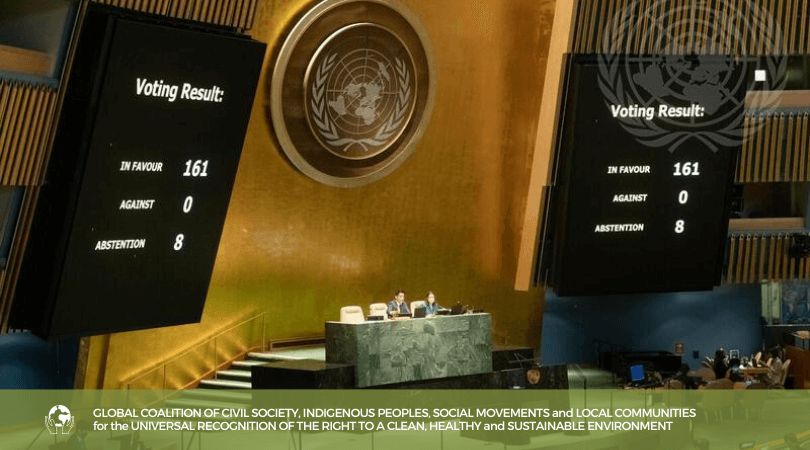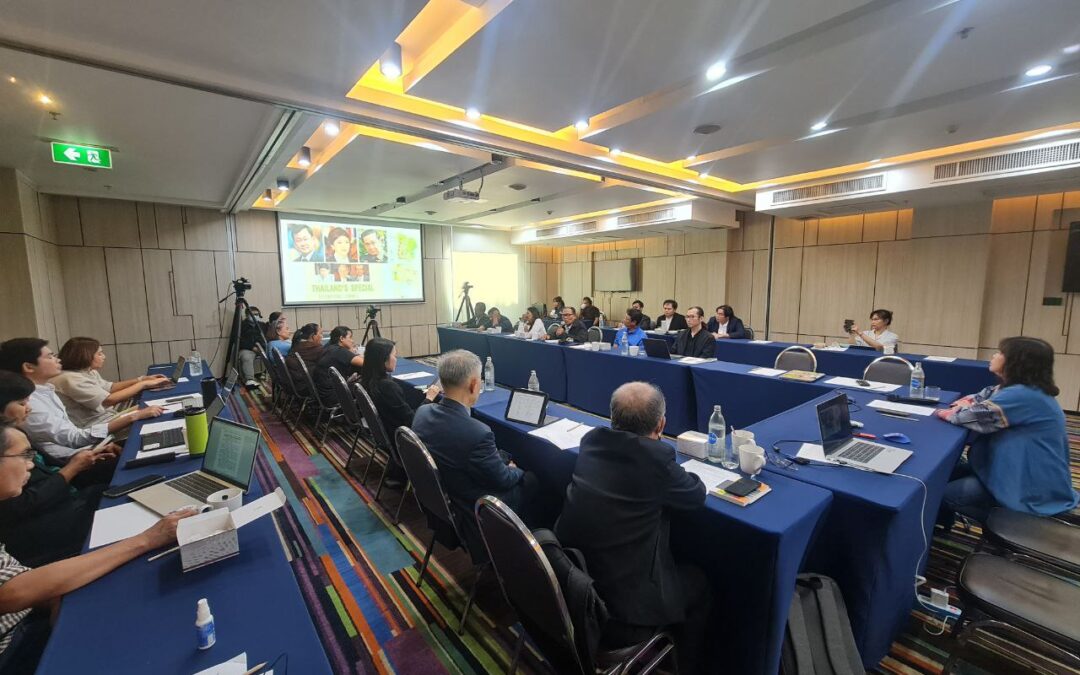
Nov 24, 2023 | Events, News
“The law governing the development of Thailand’s Eastern Economic Corridor (EEC) must be evaluated and revised to address concerns raised by local communities, and align with Thailand’s international human rights obligations,” concluded participants at a dialogue hosted by the International Commission of Jurists (ICJ), Land Watch Thai, EEC Watch, ENLAW Thai Foundation, and Thai Public Broadcasting Service (Thai PBS) in Bangkok, on 22 November 2023.
Participants shared recommendations aimed at improving the Eastern Special Development Zone Act B.E. 2561 (2018) (‘EEC Act’), which governs the operation of the EEC, to better serve the rights and interests of persons in affected communities. These suggestions will be compiled by the organizers and submitted as part of the official consultation process during the 2024 evaluation by the Office of the Eastern Special Development Zone Policy Committee (‘EEC Office’).
The EEC is a special economic zone in Thailand being developed in the eastern coastal provinces of Rayong, Chonburi, and Chachoengsao, along the Gulf of Thailand. Its objective is to promote investment in next-generation industries utilizing innovation and high technology.
“The EEC Act, however lofty are its stated aim, fails to incorporate adequate protection of human rights. While the EEC Act nominally acknowledges international human rights standards such as the United Nations Guiding Principles on Business and Human Rights’ protect, respect, and remedy framework, as well as the principle of promoting and protecting human rights in policy preparation, it fails to provide for adequate means to ensure implementation of these and other human rights standards,” said Sanhawan Srisod, ICJ’s Legal Adviser.
“According to Thai law, the evaluation must achieve goals that include aligning the law with Thailand’s international obligations under international law. Therefore, the EEC Office cannot complete the evaluation process without thoroughly addressing current gaps in compliance,” added Srisod.
The ICJ recommendations presented include the need to incorporate safeguards against forced eviction, in accordance with international human rights law, and to recognize the social, cultural, spiritual, economic, environmental, and political value of land for communities, with special emphasis on the significance for tenant farmers and small-scale food producers. Responsible land-based investments and implementing human rights due diligence are also critical elements.
A survey conducted before the dialogue with 44 affected individuals in Chonburi and Rayong provinces revealed a pattern of practices that fail to comply with Thailand’s international human rights obligations. They include:
- Lack of adequate participation of residents in the consultation process of the EEC Act.
- Absence of representation of locally affected individuals/communities in the Committee overseeing the EEC, primarily composed of governmental authorities and representatives from business sectors.
- The EEC Committee and Office hold overly broad powers without adequate checks and balances.
- The absence of effective grievance and compliance mechanisms within the EEC Office.
- Disregard for the impact of activities on local livelihoods during policy implementation.
- Ineffectiveness and inadequacy of remedies provided for individuals affected by EEC operations.
Participants suggested amending the EEC Act to address these concerns and ensure real participation, inclusiveness, adequate livelihood, a healthy environment, effective remedies, and other human rights of communities in the area.
Additionally, it addressed ongoing litigation initiated by communities challenging town planning within the EEC, specifically challenging the re-designation of agricultural, natural, and environmental reserved zones to industrial zones, which is currently pending before the Central Administrative Court.
Background
The participants comprised 30 affected individuals living in the areas of the EEC and civil society actors. This is the second dialogue following the initial one in June 2023, addressing the same topic.
According to the Act on Legislative Drafting and Evaluation of Law B.E. 2562 (2019), all Thai laws must undergo outcome evaluation at least every five years.
Speakers at the dialogue included:
- Chanchao Chaiyanukit, Former Permanent Secretary of the Ministry of Justice
- Pornpana Kuaycharoen, Land Watch Thai
- Sanhawan Srisod, ICJ
- Saowaruj Rattanakhamfu, Thailand Development Research Institute (TDRI)
- Somnuck Jongmeewasin, EEC Watch
- Sondhi Kodchawat, Environmental Researcher
- Sumitchai Hattasan, Center for Protection and Revival of Local Community Rights
- Supaporn Malailoy, ENLAWThai Foundation
- Sutthikiat Kodchaso, ENLAWThai Foundation
Contact
Sanhawan Srisod, ICJ Associate International Legal Adviser, e: sanhawan.srisod@icj.org
Further reading
Thailand: laws governing development of Eastern Economic Corridor and Special Economic Zones fail to adequately protect human rights – ICJ report
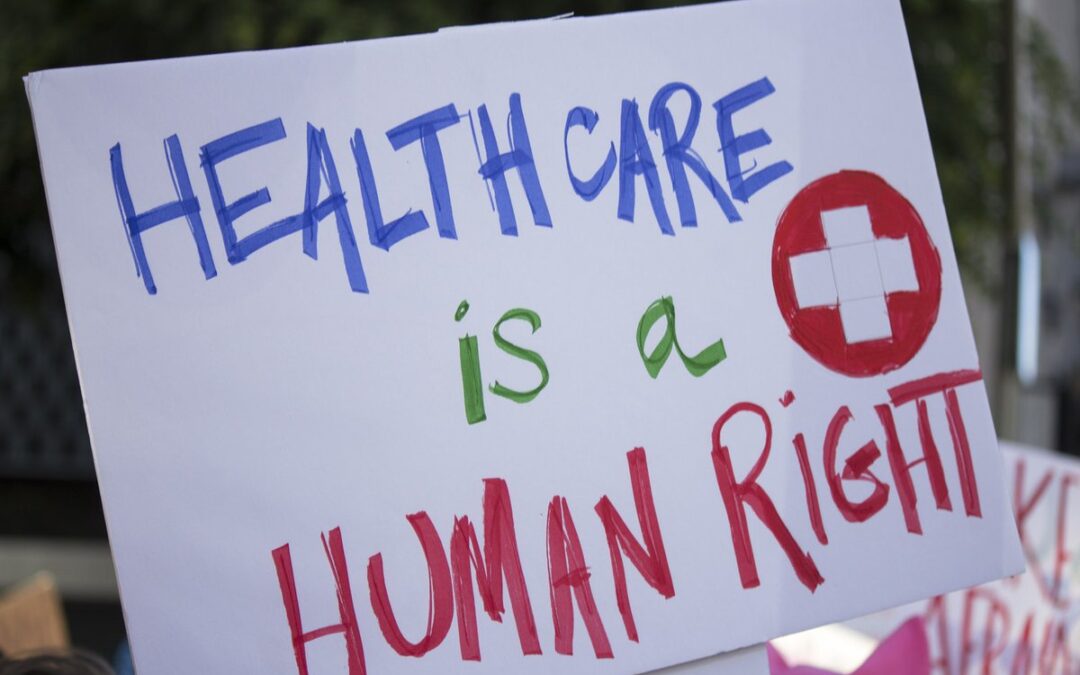
Nov 7, 2023 | News
World Health Organization (WHO) member states should push for clear commitments to human rights protections in the text of a draft “pandemic treaty” being negotiated on November 6-10, four rights organizations said today. The current draft fails to enshrine core human rights standards protected under international law, most notably the right to health and the right to benefit from scientific progress, therefore risking a repeat of the tragic failures during the Covid-19 pandemic.
The WHO’s Intergovernmental Negotiating Body is meeting to debate the draft of a new international instrument on pandemic prevention, preparedness, and response with the goal of addressing the failures of the Covid-19 response and preventing another global crisis. However, rather than acting on the lessons learned from the Covid-19 pandemic, the current proposed text offers a weak framework for ensuring that countries will be accountable for maintaining a rights-compliant response to future pandemics.
This is the position taken by four international human rights groups: Amnesty International, the Global Initiative for Economic, Social and Cultural Rights, the International Commission of Jurists, and Human Rights Watch.
“Creating a new pandemic treaty could offer an opportunity to ensure that countries are equipped with proper mechanisms for cooperation and principles to prevent the level of devastation wrought by the Covid-19 pandemic, and the rights violations resulting from government responses,” said Tamaryn Nelson, legal advisor at Amnesty International. “By failing to ground the treaty in existing human rights obligations and inadequately addressing human rights concerns arising during public health emergencies, governments risk repeating history when the next global health crisis hits.”
Existing international human rights law and standards should be explicitly referenced throughout the document, recognizing that they are core to an effective and equitable pandemic response, the organizations said. It should also incorporate developments in international human rights standards reflected, for example, in principles developed by the Global Health Law Consortium and the International Commission of Jurists in the “Principles and Guidelines on Human Rights and Public Health Emergencies,” and the Civil Society Alliance’s “Human Rights Principles For a Pandemic Treaty.”
“A global health architecture that puts profit-driven considerations at the center of global health decisions exacerbated the unprecedented magnitude of illness and death from Covid-19,” said Julia Bleckner, senior health and human rights researcher at Human Rights Watch. “Certain higher-income countries effectively hoarded vaccines and blocked a proposal to share the vaccine recipe, while those in lower-income countries died waiting for a first dose. An equitable and effective response to any future pandemic should ensure states carry out their obligation to, individually and collectively, regulate private entities to prevent them from undermining human rights.”
Human rights standards clearly establish that scientific progress must be available, accessible, acceptable, and of good quality to all individuals and communities. Governments must take steps to ensure that everyone can access the applications of scientific progress without discrimination.
The new treaty should reiterate that governments are required under international human rights law to strictly monitor and regulate private actors when they are involved in financing and the delivery of healthcare, ensuring that all their operations contribute to the full realization of the right to health. But the draft fails to incorporate the human rights framework on strictly monitoring and regulating private actors in healthcare, as well as preventing any harmful impact of private actors’ involvement in healthcare on governments’ capacity to effectively respond to pandemics. For example, the new text includes that state parties should “promote collaboration with relevant stakeholders, including the private sector” without clear human rights guardrails.
The Covid-19 pandemic was both a health and human rights catastrophe. Without clear and binding commitments to human rights law and standards leading up to and during public health emergencies, the crisis gave way to a ripple effect of human rights violations and abuses. Governments enforced lockdowns, quarantines, and other restrictions in ways that often were disproportionate to the public health threat and undermined human rights. In some cases, governments weaponized public health measures to discriminate against marginalized groups and target activists and opponents.
Yet the draft treaty fails to give governments virtually any guidance on how to comply with international law and standards, requiring any restrictions of human rights in the context of such emergencies to be evidence based, legally grounded, non-discriminatory, and necessary and proportionate to meet a compelling human rights threat. To the extent that restrictions undermine full enjoyment of economic and social rights, social relief measures to ensure the protection of those rights should also be put in place.
“The fact that the current draft of the text does not even repeat well established and existing standards in regard to legality, necessity, and proportionality of response measures is as disappointing as it is confounding. The result is a treaty that does not reflect the experience of individuals throughout the world who were subjected to human rights abuses in the name of public health response,” said Timothy Fish Hodgson, senior legal advisor at the International Commission of Jurists. “It is imperative that the negotiated text explicitly includes the necessary safeguards required under international human rights law when responding to a public health threat.”
The Covid-19 pandemic underscored the need for a social safety net and the consequences of failing to substantively account for the social and commercial determinants of health. While the current draft recognizes the ways in which the Covid-19 pandemic exacerbated inequalities, it does not explicitly commit governments to effectively protect the rights that guarantee key underlying determinants of health, including social security, food, education, housing, water, and sanitation, without discrimination.
In order to genuinely achieve its commitments to the principle of equity “at the centre of pandemic prevention, preparedness and response,” the Intergovernmental Negotiating Body should include in the draft explicit language on the obligations to proactively protect the rights of persons from marginalized groups, and to emphasize the human rights protections against discrimination.
“The global health response to the Covid-19 pandemic prioritized profit over the lives of the world’s most marginalized,” Rossella De Falco, programme officer on the right to health at the Global Initiative for Economic, Social and Cultural Rights said. “If countries are serious about preventing the inequities and loss of the Covid-19 pandemic, they will commit to a rights-aligned agreement for future pandemics.”
Please note, the text above is a shortened version of this full statement, adapted by the ICJ for its website.
For more information:
For the International Commission of Jurists, Timothy Fish Hodgson: +27-82-8719-905; or timothy.hodgson@icj.org.
For Human Rights Watch, in Nairobi, Julia Bleckner: +1-917-890-4195; or blecknj@hrw.org.
For the Global Initiative for Economic, Social and Cultural Rights: +39-393-819-5332 or rossella@gi-escr.org
For Amnesty International, Tamaryn Nelson: tamaryn.nelson@amnesty.org
Background:
Previous joint statement of ICJ, AI, GI-ESCR and HRW (24 February 2023) available here.
ICJ and Global Health Law Consortium “Principles and Guidelines on Human Rights in Public Health Emergencies” available here.
Civil Society Alliance for Human Rights in the Pandemic Treaty “Human Rights Principles for a Pandemic Treaty” (11 April 2022) available here.
Civil Society Alliance for Human Rights in the Pandemic Treaty “Why States Must Ensure Full, Meaningful and Effective Civil Society Participation in developing a Pandemic Treaty” (11 April 2022), available here.
Download the full statement
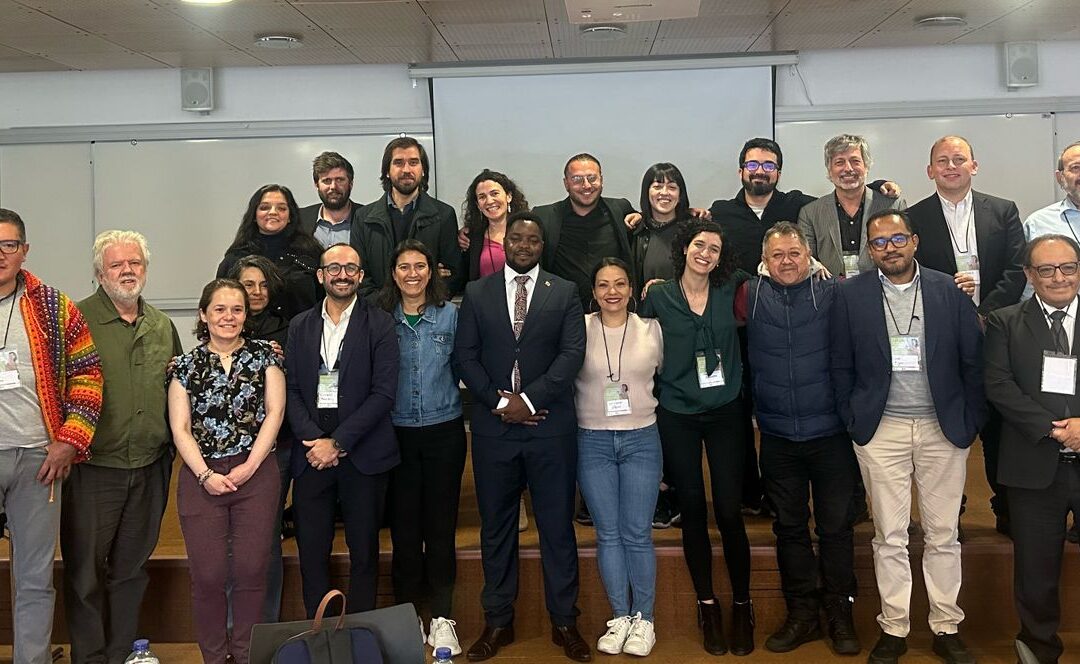
Sep 21, 2023 | Advocacy, News
Between 18 and 20 September 2023, the International Commission of Jurists (ICJ), the Access to Justice Knowledge Hub and the Andes University’s Programme of Action for Equality and Social Inclusion (Programa de Acción por la Igualdad y la Inclusión Social -PAIIS) jointly held a regional workshop in Bogotá, Colombia, on the discriminatory, disproportionate and often arbitrary use of criminal justice systems against marginalized individuals and groups in Latin America. The event brought together approximately 30 members of civil society organizations, justice actors, judges and representatives of government institutions. Participants came from a range of Latin American countries, including Argentina, Chile, Colombia, Ecuador, Mexico, Paraguay, and Peru.
The workshop centred around the ICJ’s “8 March Principles for a Human Rights-Based Approach to Criminal Law Proscribing Conduct Associated with Sex, Reproduction, Drug Use, HIV, Homelessness and Poverty” (8 March Principles) as well as the UN Special Rapporteur on the rights of persons with disabilities’ “International Principles and Guidelines on Access to Justice for Persons with Disabilities”. Participants agreed that the alarming worldwide trend of over-criminalization was evident in Latin America too. This trend hinders the advancement of human rights, especially the rights of marginalized individuals and groups, such as LGBTI+ persons, people living with HIV, women with disabilities and women living in poverty.
In his keynote presentation, ICJ Commissioner Rodrigo Uprimny discussed “the inevitability of criminal law”, describing it as “a bitter necessity for social coexistence”. Certain conduct, he argued, such as acts constituting human rights abuses, must inevitably be criminalized by States. Against this background, Uprimny also noted that there is tendency towards “penal populism” in Latin America, often resulting in the disproportionate and discriminatory use of criminal law in various contexts, such as social protest, drug use and abortion. Commenting on the importance of the 8 March Principles in Latin America, he therefore said:
“Reality shows that the conduct addressed by the Principles is precisely the conduct where the discriminatory impact of criminal law tends to be very strong (…) on all grounds of discrimination: gender, race, disability, poverty, etc. (…). The Principles call for caution against the tendency toward over-criminalization. (…). overcriminalization is not only a matter of authoritarian right-wing governments in Latin America. In the human rights world, there is a movement towards retributivism. (…) [The use of criminal law] may sometimes be justified, but sometimes it can have perverse effects.”
The participants reflected on common predicaments and barriers that criminal justice systems impose against marginalized groups and individuals in Latin America, including in relation to the disproportionate impact of criminal law on women, homeless persons, persons living with HIV, people who use drugs and persons with disabilities.
A central element of the discussion was that human rights violations as a result of criminal proceedings involve the failure of a range of actors — including judges, prosecutors, police officers and other justice actors, but also of psychiatrists and social services — to understand and apply international human rights standards. In this regard, participants highlighted, inter alia, the lack of knowledge and application of the Convention on the Rights of Persons with Disabilities and of the jurisprudence of the UN Committee on the Rights of Persons with Disabilities in relation to access to justice for persons with disabilities. As a result, persons with disabilities in Latin America, and particularly those with psychosocial disabilities, face serious obstacles in exercising their right to legal capacity in the context of criminal proceedings.
Participants committed to a common agenda for joint advocacy, including through the provision of workshops to justice actors, such as judges, in Latin America. In particular, more in-depth knowledge of international human rights law and standards in the criminal justice context, as well as disability rights, is needed.
Contacts:
Rocío Quintero M, ICJ Legal Adviser for the Latin America Programme, e: rocio.quintero@icj.org
Timothy Fish Hodgson, ICJ Senior Legal Adviser, Economic, Social and Cultural Rights, e: timothy.hodgson@icj.org
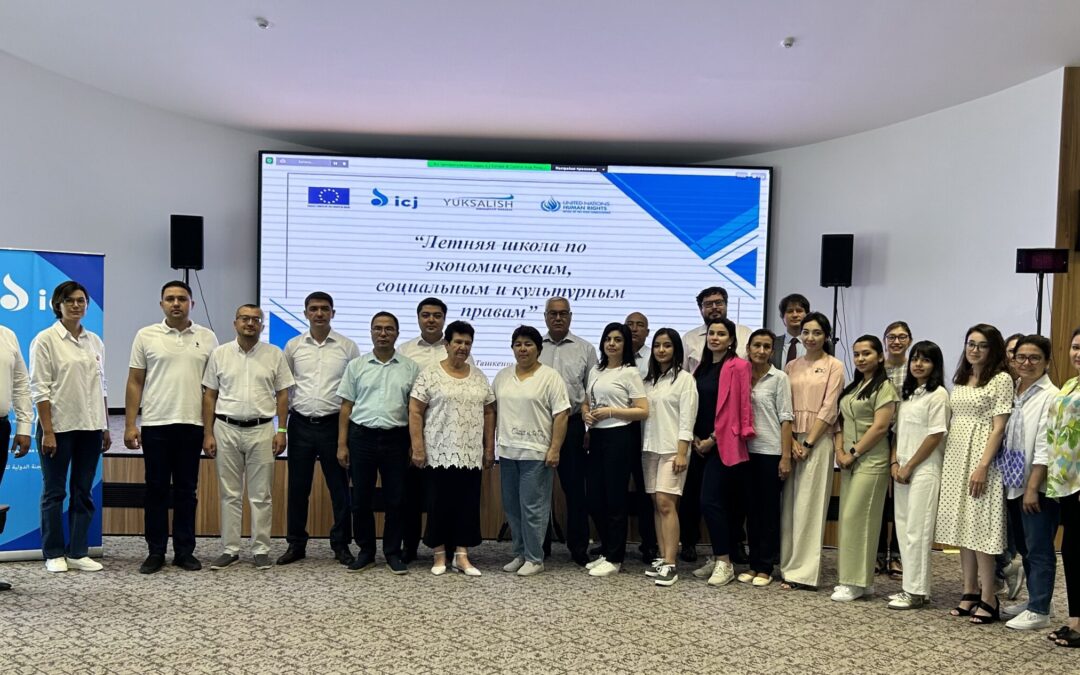
Aug 14, 2023 | Agendas, Events, News
The International Commission of Jurists (ICJ), in collaboration with the Nationwide Movement “Yuksalish” and the UN Office of the High Commissioner for Human Rights Regional Office for Central Asia (ROCA), has announced the launch of the first Human Rights Summer School on Economic, Social, and Cultural Rights (ESCR) in Uzbekistan from 14 to 18 August.
Organized within the framework of “Enhancing the Quality of Uzbekistan’s Application of International Law (EQUAL)”, funded by the European Union, this five-day educational course stands to make a real impact in advancing human rights education in Uzbekistan.





